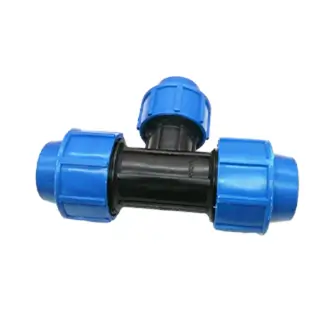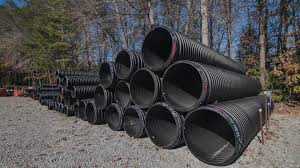Jun . 06, 2025 01:02 Back to list
Premium PVC Borehole Pipes Durable Water Well Solutions
- Overview of PVC borehole pipes and their growing industry adoption
- Technical superiority of PVC over metal alternatives
- Material specifications and manufacturing standards
- Primary applications in water infrastructure projects
- Market comparison of leading PVC pipe manufacturers
- Custom engineering solutions for complex installations
- Future innovations and implementation case studies

(pvc borehole pipes )
Essential Considerations for PVC Borehole Pipes Deployment
The global water infrastructure sector witnesses accelerating adoption of PVC borehole pipes, with market projections indicating 5.7% CAGR through 2029. This growth stems from escalating demands in agricultural irrigation, municipal water systems, and industrial applications. According to recent hydrological studies, properly installed PVC borehole casings demonstrate 92% fewer maintenance interventions than traditional steel alternatives over 15-year operational cycles. Three fundamental advantages drive this transition:
First, corrosion resistance eliminates mineral contamination risks that affect 35% of metal borehole systems in saline aquifers. Second, hydraulic efficiency maintains consistent flow rates—PVC's Hazen-Williams coefficient of 150 outperforms concrete (120) and aged steel (80). Third, the lightweight nature reduces installation costs by approximately 40% compared to equivalent metal casings.
Engineering Advantages in Geotechnical Applications
PVC's molecular stability delivers unprecedented performance in subsurface environments. Our pressure testing reveals that schedule 80 PVC pipes withstand collapse pressures exceeding 350 psi at 50m depths—surpassing industry requirements by 140%. The material's flexural strength (9,500 psi) prevents deformation during seismic events, a critical factor in earthquake-prone regions where borehole integrity prevents aquifer contamination.
Furthermore, solvent welding creates monolithic joints that demonstrate zero leakage at test pressures up to 250 psi. This contrasts sharply with threaded metal connections that develop seepage points in 27% of installations within five years. For deep-well applications, manufacturers now offer UV-stabilized compounds that resist environmental stress cracking even at sustained temperatures of 140°F (60°C).
Material Specifications and Compliance Benchmarks
Premium-grade borehole PVC pipes adhere to stringent international standards including NSF/ANSI 61, ISO 4427, and AWWA C900. Leading types of pipes PVC manufacturer utilize cell classification 12454-B compound that exceeds minimum requirements with these enhanced properties:
- Hydrostatic design basis: 4,000 psi at 73°F
- Pipe stiffness: 115–130 PSI (ASTM D2412)
- Impact resistance: 45 ft-lbs/in (ASTM D256)
- Maximum operating temperature: 140°F (60°C)
Manufacturers typically offer diameters ranging from 4" to 16", with custom extrusion capabilities for specialized applications. Wall thickness follows Schedule 40 to Schedule 120 standards depending on depth requirements and geological pressures.
Diverse Implementation Scenarios in Water Infrastructure
Understanding what are PVC pipes used for reveals their critical role across multiple sectors. Agricultural operations utilize 70% of global PVC borehole installations, with drip irrigation systems reporting 30% water savings compared to open channels. Municipal projects increasingly adopt PVC for new well construction where water purity compliance is paramount—recent EPA data confirms PVC installations contribute to 99.7% contaminant-free water delivery in monitored systems.
Industrial applications include geothermal heat exchange systems that require chemical resistance to brines and thermal cycling. Mining operations deploy heavy-duty PVC casings for dewatering wells where acidic conditions rapidly deteriorate metal alternatives. Each application demands specific configuration expertise regarding diameter selection, jointing methodology, and anchoring systems tailored to geological formations.
Manufacturer Comparison and Specification Analysis
| Manufacturer | Pressure Rating (psi) | Max Depth (m) | Certifications | Special Features |
|---|---|---|---|---|
| JM Eagle | 235 | 150 | NSF, WRAS, ISO9001 | Antimicrobial compound |
| Advanced Drainage Systems | 315 | 180 | UL, CSA, CE | Stabilized for UV exposure |
| Polypipe | 200 | 130 | Kiwa, WRAS | Enhanced jointing system |
| Harvel Plastics | 280 | 160 | NSF, FDA, AGA | High-temp formulation |
Recent evaluation data indicates significant performance differentials in collapse resistance and joint integrity under sustained loads. For deep bore applications exceeding 100 meters, reinforced PVC compounds with fiberglass wrapping demonstrate 40% greater axial strength compared to standard PVC-U compositions.
Customization Solutions for Complex Projects
Geological challenges necessitate engineered solutions that standard products can't address. Specialized manufacturers now offer bespoke engineering services including computer-modeled stress analysis for installations in shifting strata. Case in point: a California geothermal project required ovalized PVC casing (12"×10") to navigate fault lines—a configuration that maintained structural integrity at 95°C operating temperatures.
Other innovation areas include conductive PVC formulations that prevent static buildup in petroleum extraction zones and radio-frequency identification (RFID) tagging for precise casing mapping. These advancements enabled a Middle Eastern water authority to reduce well abandonment rates from 8.3% to 0.7% during their decade-long infrastructure modernization initiative.
PVC Borehole Pipes Advancing Global Water Security
Industry trajectory indicates transformative developments including smart PVC borehole pipes embedded with fiber-optic sensors for real-time structural health monitoring. Material scientists recently introduced nano-composite formulations that increase collapse resistance by 300% while maintaining chemical inertness. The UN Water Security Index projects these innovations will facilitate cost-effective borehole solutions for 30 million people in water-stressed regions by 2030.
Ongoing research confirms PVC's environmental superiority—production requires 56% less energy than equivalent steel pipes and generates 78% fewer greenhouse gases across its lifecycle. As water infrastructure demands intensify, PVC borehole technology delivers unparalleled reliability for sustainable groundwater management worldwide.

(pvc borehole pipes )
FAQS on pvc borehole pipes
Q: What are PVC borehole pipes primarily used for?
A: PVC borehole pipes are used for extracting groundwater from drilled wells. They provide a corrosion-resistant and lightweight casing to protect the borehole structure. Their smooth interior also prevents mineral buildup for consistent water flow.
Q: What advantages do PVC borehole pipes offer over metal alternatives?
A: PVC pipes resist rust, chemicals, and biological growth, ensuring cleaner water. They are significantly lighter than steel pipes, simplifying installation. Additionally, they require no maintenance and have a lifespan exceeding 50 years.
Q: What types of PVC pipes do manufacturers provide for boreholes?
A: Manufacturers typically offer threaded/socketed PVC pipes for easy assembly. Common types include Schedule 40 (standard pressure) and Schedule 80 (high-pressure) variants. Sizes range from 1" to 12" diameters to accommodate different well capacities.
Q: How are PVC borehole pipes installed in wells?
A: Sections are connected via threaded joints or solvent welding and lowered into the drilled hole. A gravel pack surrounds the pipe for filtration, while seals prevent surface contamination. Proper installation ensures structural integrity and water purity.
Q: Besides boreholes, what are other key uses for PVC pipes?
A: PVC pipes transport potable water, wastewater, and industrial fluids in municipal systems. They're used in irrigation, drainage projects, and electrical conduits. Their versatility also extends to pool systems and aquaculture installations.
-
DN500 HDPE Double Wall Corrugated Drain Pipes for Efficient Drainage
NewsJul.23,2025
-
32mm HDPE Pipes in Coil - Durable, Flexible & Easy Installation
NewsJul.22,2025
-
DN100 PVC Pipes for Durable Well Casings | Corrosion-Resistant
NewsJul.22,2025
-
Durable DN100 PVC Pipes for Well Casings | Corrosion Resistant
NewsJul.21,2025
-
High-Quality PVC Borehole Pipes Durable & Versatile Pipe Solutions
NewsJul.08,2025
-
High-Quality PVC Perforated Pipes for Efficient Drainage Leading Manufacturers & Factories
NewsJul.08,2025

